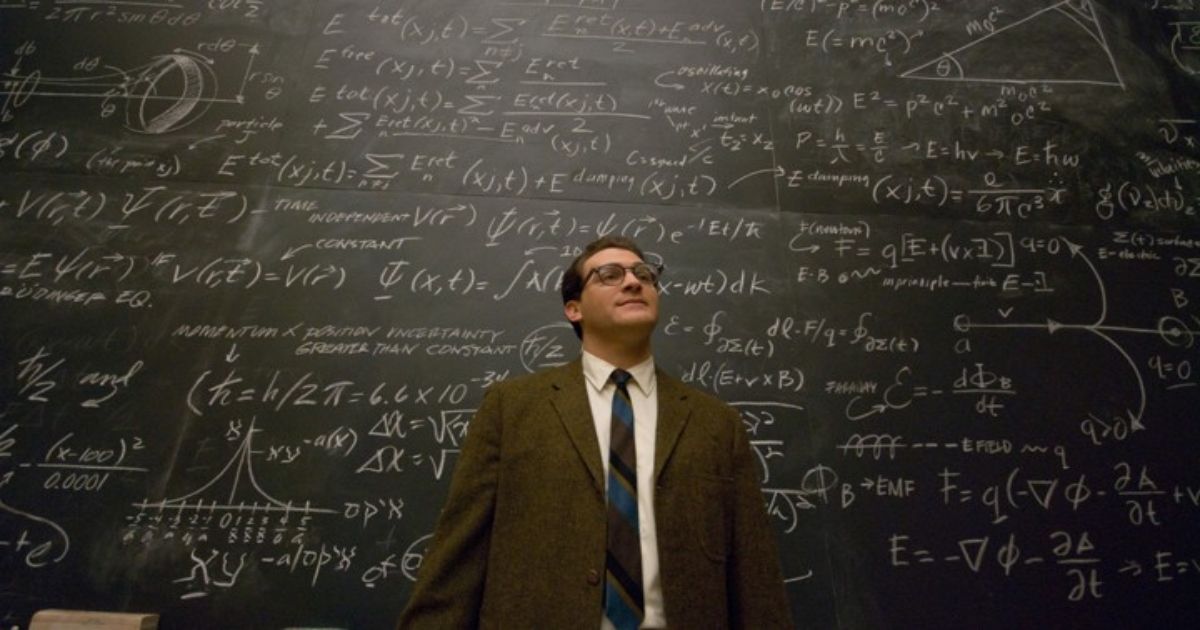It’s hard to believe that any movie developed by the minds of Joel and Ethan Coen could be overlooked since their projects have received such critical acclaim, however, the 2009 film A Serious Man is one of their most underrated projects. Very loosely inspired by the Book of Job in Hebrew scripture, A Serious Man follows a Jewish mid-western physics teacher named Larry Gopnik whose life quickly falls apart when his wife decides to leave him for another man, his children skip school and owe drug dealers money, and his brother becomes homeless and a permanent couch-surfer. In the face of this crisis, Larry revisits his Jewish faith and converses with several rabbis to make sense of recent events. Like most films by the Coen brothers, viewers are prompted to consider deeper meanings.
Although we would all like Joel and Ethan to explain A Serious Man, as with most of their projects, their explanations are scarce. Joel tells Cinema Blend that the idea sprouted from a rabbi they knew as kids “who used to meet the bar mitzvah kids in town, and he was a sphinxlike, Wizard of Oz type of character.” In addition, they were inspired by their Jewish community and neighborhood as kids, as well as the music of that era, and of course the long-suffering Job. But that doesn’t tell us why intricate events occur rapidly in Larry Gopnik’s life, the mysterious ending of the film, or the greater question of Job in general: why bad things happen to good people? Here is the most underrated Coen Brothers movie, A Serious Man, explained.
A Serious Man Examines the Conflict between Faith and Logic
That’s right, the Coen brothers aren’t presenting a puzzle here. In actuality, A Serious Man is primarily an examination of Joel and Ethan’s Jewish heritage and how it conflicted with their life in America. To illustrate this clash, these two filmmakers use a number of paradoxes in the film to communicate what it means to be Jewish. Matt Goldberg of Collider explains that “to be Jewish itself is a paradox–an outsider always living among other communities waiting for their inevitable next exodus, an exodus that’s also key to their identity.” Although there are no secrets here, this film is heavily steeped in meaning. At the opening of the movie we are presented with a quote from the French Rabbi Rashi who basically advises to receive life’s events with “simplicity.” But that’s the opposite of what Larry Gopnik does here.
In the opening scene, a sort of parable, the way life events challenge faith is laid out for us. A man, Velvel, and his wife, Dora, are a Jewish couple living in a shtetl, a small community with a large Jewish population before the Holocaust. Velvel arrives home and tells Dora that a man, Traitle Goshkover, helped him fix his broken cart on his route home and that he invited Goshkover for dinner to thank him. Dora believes that Goshkover died years ago and that her husband had actually encountered an evil spirit called a dybbuk. When Goshkover arrives, she stabs him and he flees into the night.
We are left to wonder whether Goshkover was actually an evil spirit and while Velvel is doubtful and guilty, his wife has fath that she fought off an evil spirit. This scene connects to Larry Gopnik’s own faith because although he turns to faith when his life falls apart, he is more concerned with how things add up. As a physics teacher, he wants a mathematical explanation for the chaos.
Larry Gopnik as a Serious Man
The film seems to define a “serious man” as a person who has total faith, which Larry is not. As Matt Goldberg of Collider reports Larry wants to “prove uncertainty with mathematical certainty.” To make sense of the chaotic events in his life, he consults three rabbis for some kind of explanation but is met with a common theory about meeting God in a parking lot and a story about a Jewish dentist finding the words “help me, save me” in a non-Jewish person’s mouth. So, like the film’s original quote, Larry must “receive life’s events with simplicity.”
However, Larry’s family’s ties to Jewish life and religious themes are frequently interrupted by their immersion in American life and uncertainty. Both of Larry’s children are more concerned with their social lives and American interests, his ex-wife only wants a Jewish divorce because she has fallen in love with another Jewish man, and Larry’s brother is fixated on gambling. The Gopniks are caught between two conflicting cultures that exist side by side, they are paradoxes in themselves.
By the close of the film, Larry is able to accept the contradictions and uncertainty. He recognizes God doesn’t award people for being good and passive, but that people are simply supposed to be good and expect nothing. Although Larry understands this, he sins and accepts a bribe from a student's parent. Accepting the bribe illustrates that Larry accepts the chaos, but also that consequences follow, as the film ends with images of a coming storm. The film represents Joel and Ethan Coen’s experience growing up Jewish in America and the struggle between their faith and American interests. A Serious Man is available for streaming on Amazon Prime Video.


.jpg)
.jpg)